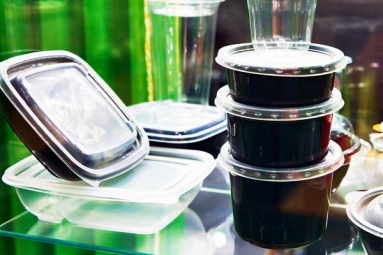Want to slash your risk of age-related memory loss, dementia, even Alzheimer's disease? Pay attention to what's on your plate. A new study by German researchers finds a Mediterranean diet may prevent age-related cognitive declines.
That's right, a heart-smart diet that helps control your cholesterol, blood sugar, and blood pressure is good for your brain, too. In fact, it can slash your risk of Alzheimer's disease by as much as 60%. So be sure to add these 10 memory-boosting foods to your diet.
Salmon: Coldwater fish like salmon are rich in omega-3 fatty acids to nourish your noggin. A recent study found eating baked or broiled fish at least once a week lowers your risk of memory loss and Alzheimer's disease. It boosts the size of your brain cells. (Skip fried fish -- researchers say it doesn't offer the same benefit.)
Chocolate: This sweet treat has antioxidants known as polyphenols, which increase blood flow to your brain to trigger growth of new blood vessels and brain cells while soothing inflammation to prevent memory loss. Chocolate is has about 150 calories per ounce, though, so nibble it in moderation.
Olive oil: You know olive oil is a boon to your heart. It also aids your brain with a compound called oleocanthal, which helps keep your synapses running smoothly to prevent nerve cell damage associated with Alzheimer's.
Hummus: This Middle Eastern dip contains three memory-enhancing ingredients: olive oil; chickpeas, which are rich in brain-boosting vitamin B6; and sesame seeds (tahini), which help lower "bad" LDL cholesterol.
Celery: It's chock-full of luteolin, an antioxidant that helps tame brain inflammation. Not bad for just 6 calories per stalk. Use it as a dipper with hummus for an awesome memory-boosting snack.
Greens: Spinach, chard, collards, and other greens are good sources of vitamin E, a key nutrient to halt brain aging. When it comes to vitamin E, only food, not supplements, can cut your risk of Alzheimer's by up to 45% and dementia by 25%.
Sunflower seeds: They're another great source of vitamin E to safeguard your memory. Aim for 19 milligrams of vitamin E a day; an ounce of sunflower seeds has 7.3 milligrams.
Whole grains. They're full of fiber and antioxidants, especially vitamin E and B vitamins, which help stabilize your blood sugar to help prevent diabetes and memory loss.
Berries: Both blueberries and blackberries are rich in antioxidant polyphenols to help boost brain cell function and prevent memory loss. Enjoy fresh berries when they're in season; pick up frozen or freeze-dried fruit the rest of the year.
Beets: These naturally sweet, jewel-toned root veggies provide nitrates, which open up blood vessels to ferry more blood and oxygen to the brain. That helps preserve your memory and prevent dementia.
Which food is bad for your memory? Sugar. And we mean the sweet stuff, like table sugar and
high-fructose corn syrup, as well as refined carbs like white rice and pasta. These contribute to high blood sugar, which can, over time, damage the part of your brain responsible for short-term memory. It's yet another reason to enjoy the holiday's many sweet temptations in moderation.








